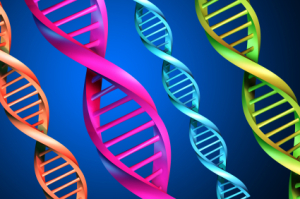by
Brendon Nafziger, DOTmed News Associate Editor | October 13, 2009

Surprising findings on
genetic disease impact
of cancer treatment
In the largest study of its kind, researchers from around the world have sought to determine if chemotherapy drugs or radiation treatment cause genetic damage that leads to birth defects in the offspring of cancer patients.
To the surprise of even the researchers, the answer seems to be: no.
Preliminary findings from a study started in the U.S. 15 years ago are to be presented at the American Society of Human Genetics meeting in Hawaii at the end of the month.



Ad Statistics
Times Displayed: 0
Times Visited: 0 Keep biomedical devices ready to go, so care teams can be ready to care for patients. GE HealthCare’s ReadySee™ helps overcome frustrations due to lack of network and device visibility, manual troubleshooting, and downtime.
The work draws on profiles of 14,357 people from across the U.S. who, from 1970 through 1986, were diagnosed with various cancers before they turned 21, as well as two massive studies in Finland and Denmark, stretching back more than 50 years, that have analyzed 14,519 patients diagnosed while they were under 35.
Altogether, over 30,000 children conceived after their parents' cancer diagnosis were studied.
And all these data point toward one conclusion. "There's no excess of genetic disease or birth defects [in the offspring of cancer patients], however defined," John Mulvihill, M.D., a geneticist at University of Oklahoma, and one of the consultants on the study, tells DOTmed News.
No evidence of higher-than-normal risk for birth defects
Dr. Mulvihill and the other researchers looked to see if these cancer patients were more likely to have children who were still-born, of low birth weight, had conditions like Down syndrome that are the result of chromosomal errors, or were afflicted with one of around 50 rare genetic disorders known to be produced by damage to single genes.
The initial results are, in Dr. Mulvihill's words, "unbelievable." The children of these parents were no more likely to suffer from any of these effects than the children of anybody else.
However, all the studies did show a slight increase in cancer rates among the children of cancer survivors, though the cause of this is probably not an after-effect of the treatment, but rather heredity. Parents pass on the genes that make them susceptible to certain kinds of cancer in the first place.
As an example, Dr. Mulvihill mentions a well-known tumor, the retinoblastoma of the eye. "Sometimes it's familial," he says. "If a parent has it and gets cured, there's a 50-50 chance the offspring will have it, too."
Presumed danger of treatment
Radiation therapy works in part by damaging the DNA in cancer cells. Many chemotherapy drugs target a similar mechanism. "They zap [genetic material] just like radiation does," says Dr. Mulvihill.
The fear is that if this DNA-damage occurs in the sex cells, it could cause mutations that would result in birth defects or miscarriages.

